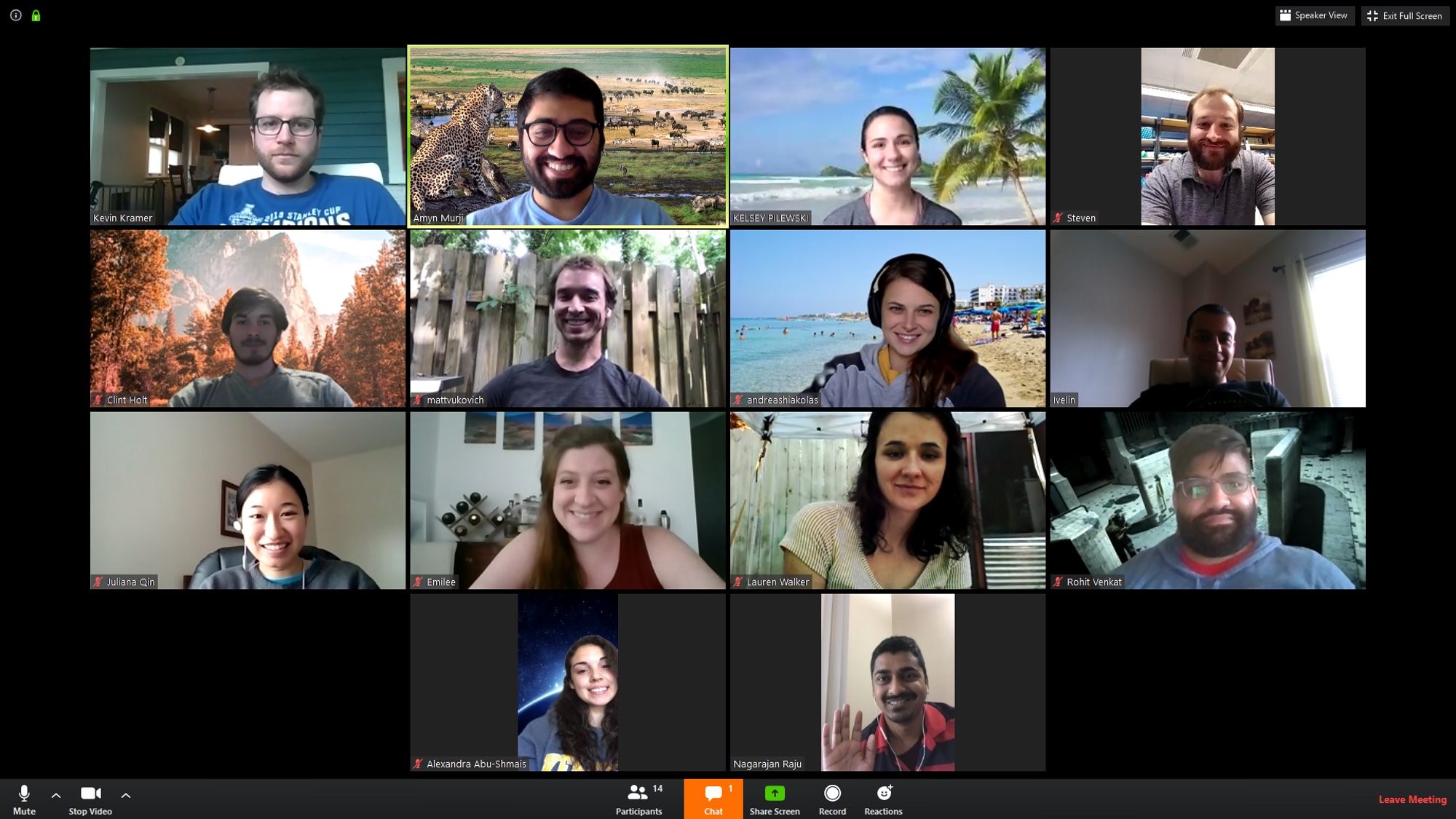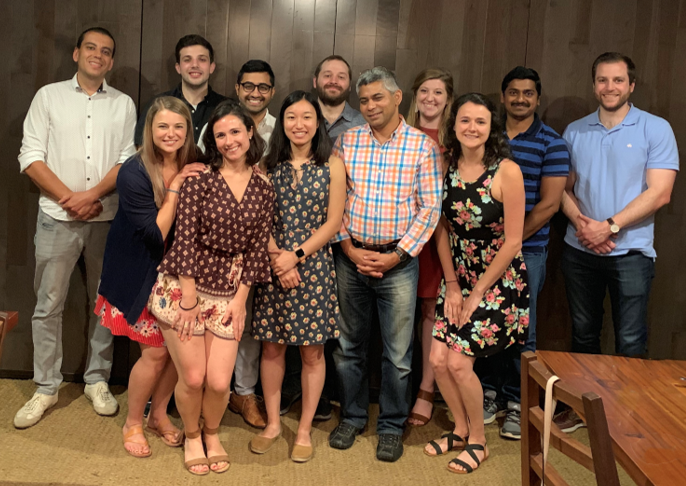Ivelin Georgiev received his Ph.D. in Computer Science from Duke University. In 2009, he joined the newly formed Structural Bioinformatics Core Section at the Vaccine Research Center (VRC) on the main NIH campus in Bethesda, MD, where he served as a staff scientist and co-head until 2015. Dr. Georgiev is an Associate Director for the Vanderbilt Institute for Infection, Immunology and Inflammation. He is also a faculty member at the Vanderbilt Vaccine Center and an Assistant Professor of Pathology, Microbiology and Immunology and of Computer Science at Vanderbilt.
How long have you been with VUMC?
I've been here for 5 years!
What is one topic in your field that you are excited about right now?
One of the major challenges for the development of effective vaccines against viruses such as influenza, HIV-1, HCV, and dengue, is that the high level of antigen sequence diversity requires the elicitation of broadly reactive antibodies capable of neutralizing the diverse circulating strains for a given virus. A dominant hypothesis in the field is that the elicitation of such broadly neutralizing antibodies will require explicitly accounting for antigen diversity. Yet, currently it is not clear what are the exact approaches that are needed to optimally incorporate antigen diversity as part of the immunization strategies. We are excited to apply our unique interdisciplinary approach to science to address these questions.
Tell us something exciting happening in your lab at the moment.
Despite decades of antibody discovery efforts, there is still very limited data linking human antibody sequence to antigen specificity. One of the major reasons for such limited data is the fact that high-throughput antibody sequence identification methods are generally decoupled from the process of antibody functional characterization. To address this challenge, my group recently developed LIBRA-seq (LInking B-cell Receptor to Antigen specificity through sequencing), a transformative new technology that, for a given sample, enables the mapping of antibody sequence to antigen specificity from a single high-throughput experiment for a large number of antigens at a time. We are currently pursuing the application of the LIBRA-seq technology to study infection and vaccine samples against a diverse set of targets.

Top Row L to R: Kevin Kramer, Amyn Murji, Kelsey Pilewski, Steven Wall
Middle Top Row L to R: Clinton Holt, Matthew Vukovich, Andrea Shiakolas, Ivelin Georgiev
Middle Bottom Row L to R: Juliana Qin, Emilee Friedman Fechter, Lauren Walker, Rohit Venkat
Bottom Row L to R: Alexandra Abu-Shmais and Nagarajan Raju
What is one piece of advice you'd give to a new graduate student?
Always keep up to date with the literature relevant to your field and, more broadly, with exciting new science. It's kind of hard to be standing on the shoulders of giants if you don't know where the giants are standing.
Give a good recent article to read that's related to your field of study.
Saunders KO, Wiehe K, Tian M, et al. “Targeted selection of HIV-specific antibody mutations by engineering B cell maturation.” Science. 2019;366(6470):eaay7199. doi:10.1126/science.aay7199
What VI4 programming are you most looking forward to or has been the most impactful?
The annual VI4 Symposium!


